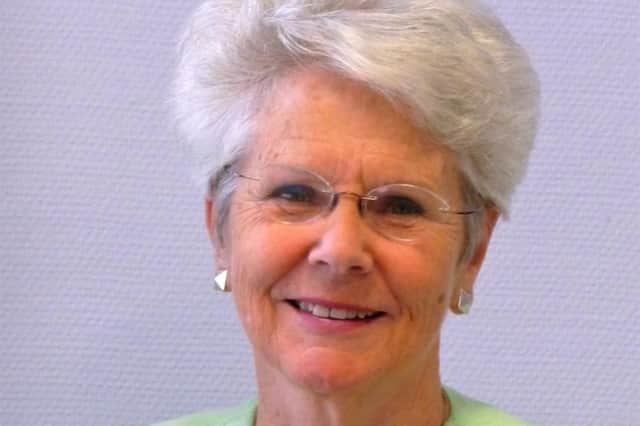Scotsman Obituaries: Margery Naylor, reformer of social services and scout leader


As was the lot of most women of her generation, Margery’s life and career were determined partly by the activities of her husband and family. In her case, wherever they lived her abilities led to her being asked to assume leading roles in social work and voluntary organisations, and ultimately in the reform of social care for the elderly in Scotland. In every role she was to assume, she would leave the organisation better for her practical innovations.
Margery was born in Edinburgh in a medical family. Her father, Dr Graham Thomson, joined the Colonial Medical Service and her childhood was spent in Trinidad and Hong Kong, where her potential was noted in the King George V School.
Advertisement
Hide AdAdvertisement
Hide AdThe early death of her father forced a move to Cambridge where her mother, a nurse, set up a nursery school to make ends meet. Margery obtained a place in Newcastle University. graduating top of her year in anthropology and was offered a chance of working for a PhD in animal behaviour. However, she had already met John Naylor, who was shortly to become her husband, and his work took them first to Liverpool, where she took the opportunity of taking two diplomas, in Social Administration and then in Applied Social Studies – her interest in animal behaviour was subsequently focused on the human animal, and especially the elderly and less fortunate. Her first appointment was as a social worker in Liverpool.
In the 1970s their two sons were born and the period of bringing them up was accompanied by her working voluntarily in marriage guidance and for the Church.
A short period spent in the Lake District, where Margery became president of the local Women’s Institute, was followed by the family’s next move, to Redbridge in London, where she worked from 1984 as a social worker.
In 1990 she was appointed director of quality control for social services, housing and environmental health and then director of community care for the borough, serving a population the size of Edinburgh’s. Her flair for innovation let to her introducing a new and effective complaints procedure, guidance on foster care and a teenage fostering scheme.
A further change of her husband’s job in 1993 took them to Margery’s birthplace, Edinburgh, where she quickly obtained the post of coordinator for social work for Lothian and developed the pioneering Lothian Learning Disabilities Strategy, most notably moving care from long-stay hospital to the community.
Following Local Government reform, she was appointed head of planning and policy for social work services for West Lothian. Her effectiveness in these posts led to the Scottish Executive appointing her to its Joint Future Unit in 2001, pioneering collaboration between social work, health and housing.
A major achievement was her leadership in the introduction of Free Personal Care, on which she worked closely with Scottish Ministers. In 2005, she was appointed a Senior Social Work Inspector in the new Scottish Inspection Agency, devising an innovative methodology for inspection and evaluation of effectiveness in the area of care of the elderly, before formally retiring in 2010.
Retirement for Margery was an opportunity to apply herself to her many other voluntary projects. She had long worked with the Scouting movement as a cub leader and in safeguarding and adult training, and in 2017 was appointed Regional Commissioner for Southeast Scotland.
Advertisement
Hide AdAdvertisement
Hide AdShe was appointed Chair of the Cramond Association, driving its role in local improvements and turning it into a Scottish charity. She became Vice Chair of Leith Citizens’ Advice Bureau and Chair of Voluntary Health Scotland, where she obtained Scottish Government funding to allow it to support a variety of small third sector organisations focussing on health issues.
All who worked with Margery were quickly impressed by her quiet, unassuming method of detecting means of improvement and, more importantly, putting them into effect. It seemed that nothing could stop Margery from agreeing to accept more roles requiring her skills and experience, even when she was struck by the cancer which ended her life.
Despite her many activities, Margery remained primarily a wife, mother and grandmother to six, to all of whom she taught chess. Her work complemented that of her equally busy husband, John, and later they were able to spend many happy times travelling and enjoying the arts in the intervals between their voluntary activities.
She bore her final illness bravely and died peacefully at her home in Cramond, surrounded by her family. Her funeral was attended by representatives of the organisations for which she had worked, most of whom were astonished to learn how many others had benefited from her self-effacing leadership.
Margery is survived by her husband John, their two sons and their grandchildren
Obituaries
If you would like to submit an obituary (800-1000 words preferred, with jpeg image), or have a suggestion for a subject, contact [email protected]
Subscribe
Subscribe at www.scotsman.com/subscriptions